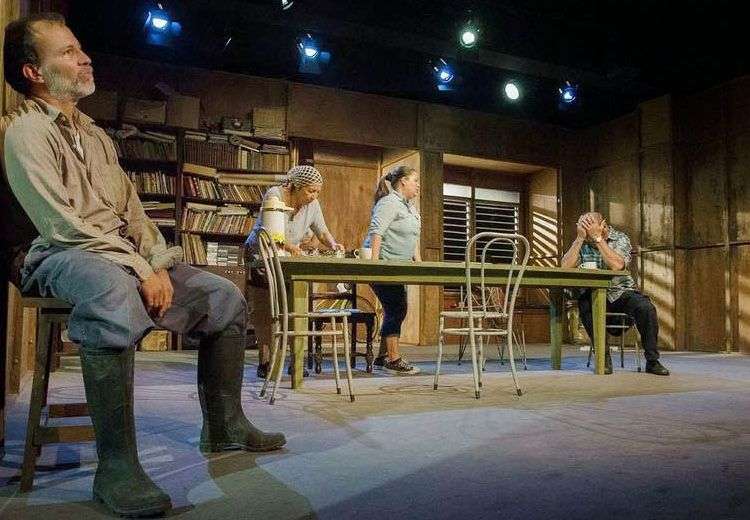If you have ever felt that you live surrounded by mediocrity; if day to day things you do not do accumulate, even wanting them, then, if you’re still strong and has not been eaten by inertia or procrastination-maybe you should stop by Argos Teatro to see Uncle Vanya, the version of the work eponymous by Anton Chekhov directed by Carlos Celdran.
It doesn’t matter if you do not like the theater. This work goes beyond Stanislavski, who, incidentally, directed it with some success in the Moscow Theater in 1900. This work is about the wasted lives of the people who talk without knowing what they are talking about. And I think,-Jorge Manach would agree-that in Cuba we have more than one point in common with the topic. No wonder the work has enjoyed sold-out in every start since April, with more than 1200 spectators.
It is a bit scary that Chekhov’s characters, with useless, tedious and lonely lives, people unable to communicate with each other and unable to change the society in which they live, find a place in Cuba, with its supreme status as the first socialist country of America.
But all the success of Uncle Vanya is not Chekhov’s merit. Anyone who has read The Cherry Orchard and The Three Sisters, knows he could be an incredibly dense writer, some people even called him “the chronicler of boredom.” Instead, the Uncle Vanya Celdrán presents encloses a contextualized-and-updated version, for Cubans.
The event that triggers the drama of Uncle Vanya is the arrival of Alexander (Waldo Franco) and his much younger wife, Elena (Yuliet Pérez), to the farm where Sonia lives (Yailín Coppola), daughter of the first marriage of the Professor. Along with his Uncle Vanya (the superlative José Luis Hidalgo), Sonia manages the place. She is in love with Dr. Mikhail (a renewed Hector Noas) that maximizes his histrionic qualities), who in turn is in love with Elena.
Uncle Vanya, complex, changing, authentic goods producer, whose top scenes are of drunkenness, opposes useless intellectual and personal fraud of Professor Alexander, whom he admired as an artist, and of whom he has become disillusioned.
There’s a lot of heartbreak and unrequited love in Uncle Vanya. Unlike Brazilian telenovelas, and in correlation with life itself, the characters do not always get what they want: love does not triumph over circumstances; circumstances relentlessly crush love. Chekhov does not believe in love. He does not let his characters have it. He leaves them living in despair, until it becomes part of their identity. If Uncle Vanya love is still sought after as a salvation entity, if it is still thought of as a consolation, the reality is that the loss of love, its absence or defeat, the silence in the heart is not accepted, they have become part of the burden and the lyricism of human sorrow.
To mitigate the sorrow, it is well known, few things work. One is alcohol. Chekhov’s characters, at least the ones in Carlos Celdran staging, assume it, and thus speak to the public, with a bottle in their hands; cry, make up, always drinking. And above all, they complain: “For fifty years we just talk and talk and read articles” and “Among the many mediocre one ends up becoming mediocre,” Noas says while spitting rum. And again his actions died in words and gestures are left without responding to his desires, and opened a gash in the biography of our lives, personal and collective; and in the pit there is Chekhov lost ideals, stinging, hurtful and cruel as that can only be mitigated by another drink.










